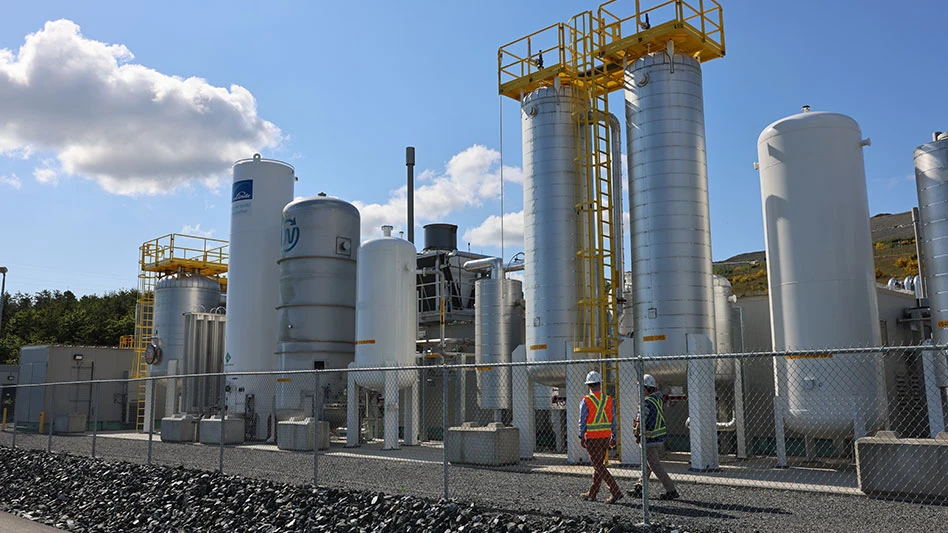
Among those challenges are rising bale prices and difficulty hiring and retaining employees.
The PET reprocessor says bottle bale prices have increased significantly in part because of insufficient supply of and growing demand for recycled PET (rPET) from brand owners. “I agree it needed to come up some,” she says of PET bottle bale pricing, “but not this quickly.”
Bill Keegan, president of material recovery facility (MRF) operator Dem-Con Cos., Shakopee, Minnesota, says PET bale pricing more than doubled in the first quarter of this year, as did pricing for polypropylene (PP) bales.
“Demand has been good, which is indicative of pricing,” he says. “Pricing has been strong and is going up.”
Keegan continues, “Values have increased in a very good way but also in a crazy fast way.” He cites natural high-density polyethylene (HDPE) pricing, in particular, noting that as of mid-June it was 30 percent higher than used beverage can, or UBC, pricing. He says Dem-Con is telling its sorting staff, “If you have a choice, don’t let the HDPE natural go by. The message used to be, ‘Grab the aluminum can.’”
The amount of PET traveling through Dem-Con’s MRF has increased by 40 percent in the last year, Keegan says. PET comprised 4 percent of the material the MRF handled in 2019. In 2020, it grew to 5.5 percent, and that increase appears to be holding so far in 2021, he adds.
Dem-Con sells its recovered plastics locally as well as nationwide. Keegan says that while export pricing is competitive with domestic pricing, overseas transportation carries too much risk currently. Additionally, “There is enough local demand. That has been a positive to come out of Green Fence,” he says, citing China’s 2013 policy that targeted low-grade and mixed plastic scrap imports.
While the PET reprocessor says MRFs are reporting an uptick in PET generation, staffing issues have delayed the marketing of some of that material. One of the MRF operators that supplies her company has two MRFs within 30 miles of one another, she says. “They have bottles but not people,” the reprocessor says, explaining that only one of the MRFs is operating because of staffing issues.
Her company also has been struggling with hiring and retaining employees. “All manufacturers are suffering from a lack of people,” she says. “It’s more challenging than I’ve seen it in a while.”
Regarding virgin PET, the reprocessor says she thinks the market is in store for “another crazy six to eight weeks” as of early June.
However, she says demand for rPET “is just going to continue to increase irrespective of the virgin market. I think we’ll see some pullback on the demand side as virgin [availability] gets better, but brand commitments will drive [rPET] demand. We believe that demand is not the issue, but that supply is.”
She says national legislation targeted at beverage producers could help to address the sourcing challenges.
Latest from Waste Today
- Bioenergy Devco rebrands
- Ecogensus acquires two recycling facilities
- Routeware celebrates 25 years of innovation
- Montana city approves compost facility improvements
- Willows offer a nature-based solution to reducing leachate volumes
- REI outdoors retailer hits zero waste target
- Minnesota awards $1M in waste reduction grants
- Nashville, Tennessee, inches closer to establishing standalone solid waste department





